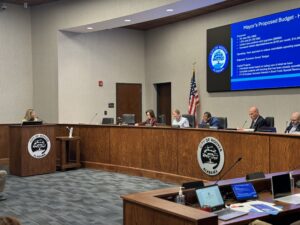AG Steve Marshall files lawsuit against Alabama Ethics Commission policy
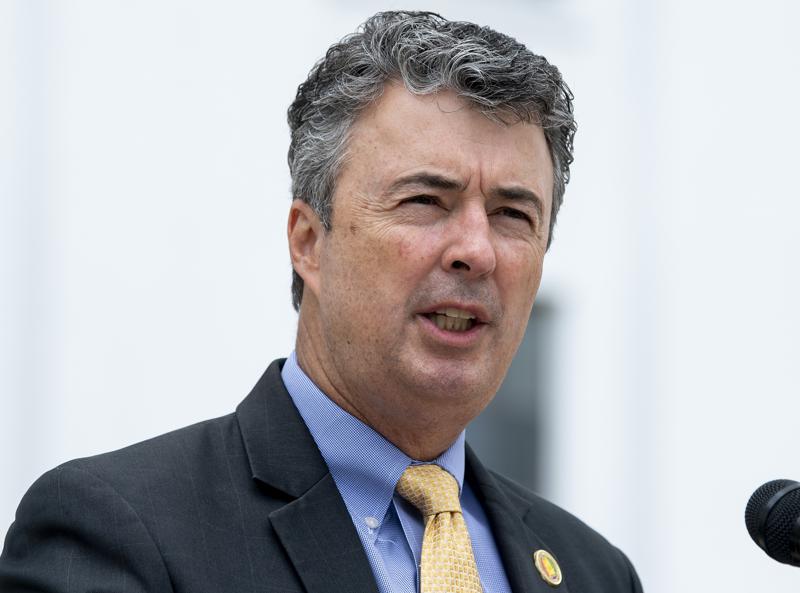
Attorney General Steve Marshall has filed a lawsuit against the Alabama Ethics Commission, seeking to revoke a recent advisory opinion. According to the Alabama Political Reporter, this type of lawsuit, where one state agency sues another, is quite rare. The lawsuit, filed Monday in Montgomery County Circuit Court, names Commissioners John Plunk, Stan McDonald, Lynn Stuart, Ed Crowell, and executive director Tom Albritton as defendants. The lawsuit says the Ethics Commission’s rule 2022-13 is in violation of the Alabama Administrative Procedures Act. The commission adopted an opinion this year stating that it had no responsibility to disclose to individuals under investigation any exculpatory information it might uncover during the course of the investigation. The lawsuit argues that the Brady rule was established in a 1963 federal case, Brady v. Maryland, and requires prosecutors to disclose material favorable to the accused as a matter of due process. In the lawsuit, Marshall says his office cannot trust the referrals for criminal investigation or administrative resolutions because of the policy of not disclosing exculpatory information to the person under investigation, a policy supported by an Ethics Commission advisory opinion adopted in July. Essentially, the Ethics Commission’s ruling argues that if, during the course of an investigation, evidence is found that would aid the person under investigation, the Commission has no responsibility to disclose said information, even if it could end the investigation and clear that person’s name. “Thus, the respondent can neither be confident that he fully understands the case against him, nor that the exculpatory evidence has been considered by the Ethics Commission before it votes on whether to refer the matter for prosecution or administrative resolution,” the lawsuit states. “In either case, the respondent’s legal defense is impeded.” In a statement this morning, Albritton defended the policy. “We disagree with the AG’s analysis and conclusions because the Opinion accurately reflects existing case law on the issue, and the Commission is bound by that precedent,” Albritton stated. “As stated by the Commission publicly when they approved the Advisory Opinion, however, the Commission welcomes a court of competent jurisdiction to review these issues in light of the applicable statutory provisions and existing case law and will abide by whatever direction that Court gives us.” According to the Ethics Commission website, the mission of the Commission is to ensure that public officials are independent and impartial, that decisions and policies are made in the proper governmental channels, that public office is not used for private gain, and that there is public confidence in the integrity of government.
Wesley Britt joins government affairs firm Fine & Geddie

Wesley Britt, the husband of U.S. Senator-elect Katie Britt, has joined Fine, Geddie and Associates, governmental affairs firms based out of Montgomery, Alabama Daily News reported. Before stepping down to help his wife campaign for the U.S. Senate, Britt worked in economic development and government affairs for Alabama Power. Britt will work with state-level clients and take no part in federal lobbying efforts, according to a statement from the firm. “I am thrilled and grateful for the opportunity to join a top-notch team at Fine Geddie,” Britt said in an announcement. “Joe Fine and Bob Geddie are first-ballot hall of famers, and I can’t wait to work with everyone at the firm to serve our clients and strengthen our great state.” Britt was an All-American offensive tackle for the University of Alabama and played with New England Patriots. The firm’s founding partners expressed excitement over Britt joining the firm. “Wesley shares our love of the state of Alabama, and we look forward to having him as a member of our team,” they said in a statement. “Wesley’s intricate knowledge of Alabama’s economic development landscape, extensive experience in Montgomery’s governmental affairs arena, deep roots in communities across the state, proven track record of meaningful relationship building, and his true heart for service will enhance our firm’s mission and record of success.” Wesley is originally from Cullman County. The Britts live in Montgomery with their two children, Bennett and Ridgeway.
Gary Palmer urges college students to read history
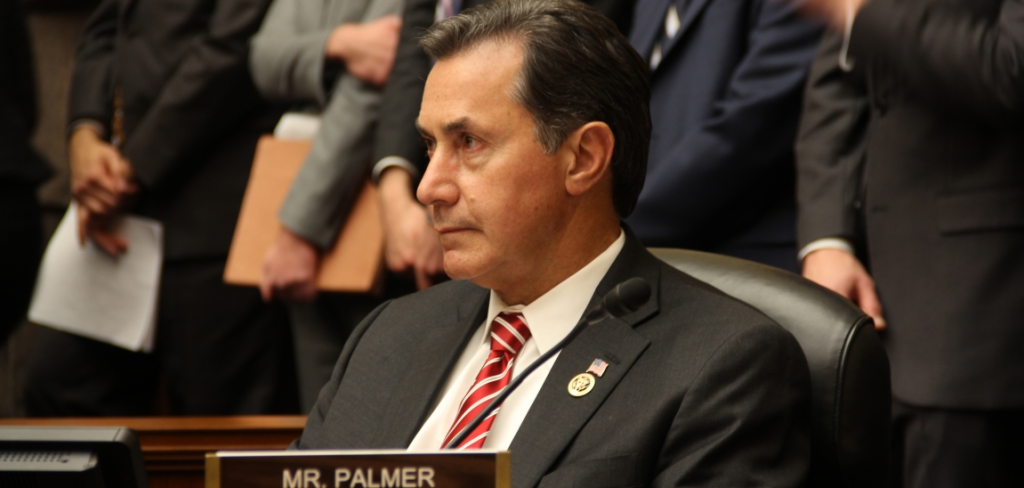
On Monday evening Congressman Gary Palmer spoke to the University of Alabama College Republicans. In the meeting, Palmer advised the students to read books, particularly history. “I don’t think that history is required anymore,” Palmer said. “History is about telling stories.” Republicans won a small majority in the House of Representatives and failed to take control of the U.S. Senate in recent congressional midterm elections on November 8. “We did not do as well as would like,” Palmer said of the GOP House Caucus. Palmer said that his Republican colleagues did not win as many races as they should have because they did not do a good job at telling stories. “History is about telling stories,” Palmer continued. “The pages of history will reflect the decisions that you make. You are creating a life story. The decisions that you make will set the back story for the story that you are writing. Most of the time, when you think about history, you are thinking about battles and big events, but history is more than that.” “Smart people learn from their mistakes, but brilliant people learn from other people’s mistakes,” Palmer said. “When you are reading history, you are reading the story of people who made decisions.” Palmer said that inflation and the high cost of living are impacting Americans’ lives. “Inflation is basically driven by three things: monetary policy, energy policy, and regulatory cost,” Palmer explained. “Congress can address all three of these.” “We didn’t connect to people’s story,” Palmer continued. “We just said Joe Biden is a bad President, and Nancy Pelosi is a bad Speaker, and that is a bad message for Republicans.” “There is one indisputable fact that we have to accept,” Palmer said. “That we are going to occupy the same piece of dirt.” While the University of Alabama and many other schools no longer require that students take history (American or otherwise) for graduates to get a degree, Palmer said, “The number of students taking history as an elective has gone up.” While interest in history may be growing, Palmer questioned some of its accuracies. “Are you getting history that is honest?” Palmer said. “This punitive view of history that is directed at Europeans that Europeans came over here to dominate indigenous peoples. I am not going to argue that that was right. I am part Native American – Cherokee. When Andrew Jackson signed a treaty that the Cherokee would vacate the Eastern United States, part of that treaty is that they would have an at-large member of Congress. Not a voting member, but like we have with Puerto Rico, where they can’t vote, but they can in Committee. That has never been fulfilled.” “We have made some really bad mistakes,” Palmer said. “I keep pushing for you to read history. An enormous sacrifice was paid for your right to vote. You never had a country like this country until we came into being (with the ratification of the Constitution) in 1789. We were the only democracy of its type in the world. Now there is over a hundred.” Palmer said that he is not sure what Speaker of the House Nancy Pelosi will bring to the floor in the lame-duck remaining weeks in the current Congress. Palmer was asked if he thought they would vote on extending daylight savings time, which passed the Senate months ago. “Probably not,” Palmer answered. “I know we have got to fund the government the week after next. It is appropriately scheduled for 8 days before Christmas.” Beginning in January, the new Congress will have the first Republican House majority in four years. “I am going to be addressing a lot more bills than I have had in the past that will be difficult for the Democrats to oppose, particularly on our fiscal issues,” Palmer said. The College Republicans of Alabama will meet on Tuesday to hold officer elections. Palmer represents Alabama’s Sixth Congressional District. To connect with the author of this story, or to comment, email brandonmreporter@gmail.com.
The future of Alabama Today: With great power comes great responsibility

The greatest job I’ll ever have is to be a mother. I have three children, including a 4-year-old son. For months, he’s been increasingly devoted to all things Super Hero. He’s a Spider-Man fan, but after the third or so go-round with the Spider-Man 5-Minute bedtime book, I decided to expand his horizons into The Avengers, X-Men, and the whole crew. A consistent refrain in each Spider-Man story is the sage advice Peter Parker’s Uncle Ben gave him, “With great power comes great responsibility.” It’s been a while since I’ve written an editorial column, and for that, I apologize. I and I alone am responsible for and own this site and all of its content in its entirety. I answer to no one when it comes to Alabama Today, which is a blessing and a curse. My copy editors and writers can only nag me so much to do what needs to be done, but alas, I am back. I’m constantly reminded that life comes at you fast, and it has for me and my family as well. Since March 2020, when COVID turned the world on its head, it feels like time has proven the saying, “The days are long, and the years fly by.” In this last year and a half, I’ve been honored to join the team at Bluewater Broadcasting. What started as a temporary opportunity at the beginning of last year turned into a new job and what I hope to make a cornerstone of my career. You can find me as a talk radio host on News Talk 93.1 FM in Montgomery from 9:00 am to 12:00 pm central. I love my show, and if you’ve enjoyed my editorials over the years, you will too. Straight Talk with Apryl Marie gives me the opportunity to share my opinions on the news of the day in politics five days a week. Soon, we will integrate content from it into both news and editorial content. The job, which requires a 3-hour daily commute to be in a studio, has shaken things up quite a bit. That’s not what has consumed most of my time and energy, though. Unfortunately, I lost my father, my North Star, to COVID, which still feels surreal to me to say or type. Life for a daddy’s girl who has lost both of her beloved fathers unexpectedly and much too young has been tough. I decided to move to Montgomery towards the end of last year. I decided to postpone that move at the beginning of this year. I decided to sell this website. I decided not to sell this website. Uncertainty has reigned, but no more. So what comes next? With great power comes great responsibility. Alabama Today has the power to shape and drive conversation, to inform, and, yes, even entertain. So as we round out this year, we are poised to make our team and our content stronger than ever coming into 2023. This site gives me the ability to communicate not just my thoughts and opinions in editorial form, which I will be doing more of, but also to bring you the opinions of others across a broad spectrum of ideological and philosophical backgrounds, which we as a team will also be doing more of. While I frequently mock the Left, well-reasoned positions, even those I disagree with, have been welcome here on the pages of Alabama Today’s editorial section, a practice we will continue. We have and will continue to cover their stories in hard news as well. Alabama Today will also be bringing back its afternoon newsletters, which you can sign-up for on the right side of our homepage. Finally, I’m proud to announce that in the coming year, we will also be posting regular video updates that you can find on our Facebook page. These will be critical to following what is going on in the legislative session as we wait to see if the promises made during campaign season are easily forgotten. I was asked recently to reflect on why I started this site. I started it because I was tired of reading editorial content dressed up as news on the traditional and digital news sites that existed when I moved to Alabama. I’ve always been proud of what my friend, Peter Schorsch, has done with his news site in Florida. Many have tried and failed to replicate it, including me. I am still confident that this site can be the best in the state with an unflinching dedication to keeping balance in our content. What that means to you, dear reader, is this: More of the pointed editorial content I am known for, actively seeking out additional editorial contributions from around the state, growing into a regional news coverage medium with additional focus on local politics, video content, and more interaction on social media. Speaking of which, you can find our Facebook page here, my Facebook page here, our Twitter page here, and my Twitter page here. This post is the first in a series about the state of news in our great state. Stay tuned for the next, where I will address the recently announced changes to print papers in this state and the implications that may have on digital media.
Hugh Freeze will become Auburn’s next head football coach
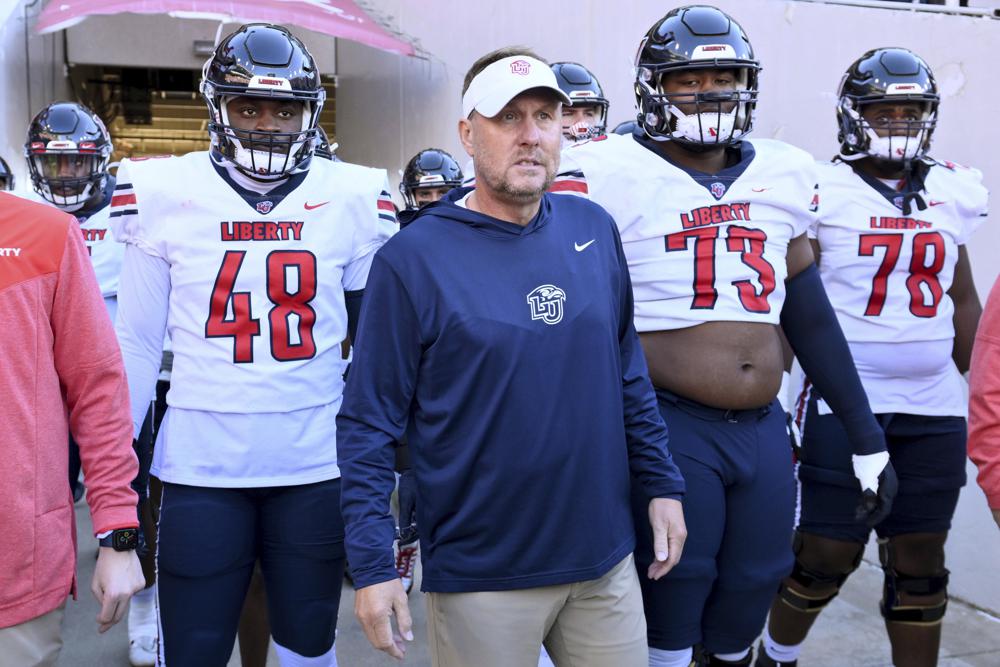
Auburn University announced on Monday that Liberty Coach Hugh Freeze would be Auburn’s next head football coach. “After a thoughtful, thorough, and well-vetted search, we ended where we started, with Hugh Freeze,” Auburn Athletics Director John Cohen said in a statement. “Of all the candidates we considered, Hugh was the best fit. Fit has several meanings, but the most important factors were student-athlete development, football strategy, recruiting, and SEC experience.” ESPN’s Paul Finebaum is reporting that the job was offered to Ole Miss head coach Lane Kiffin on Friday, but he turned down the job, electing to accept a $9 million-dollar-a-year contract extension with the Rebels instead. Freeze and Kiffin had been the only two coaches seriously considered by Auburn officials in the search that most people believe began even before Coach Bryan Harsin was fired midseason. Freeze spent the last four years coaching at Liberty after he was fired at Ole Miss, where he was the coach from 2012 to 2016. Freeze is a known commodity within the Southeastern Conference coaching community. Many Auburn fans had wanted interim Coach Carnell “Cadillac” Williams to get the job, but it appears that decision-makers at Auburn never seriously considered Cadillac for the opening. Williams, the only Black head football Coach in Auburn history, is a former Auburn and NFL player. Williams had been the running backs coach under Harsin. He finished 2 and 2 as the interim coach. “First, I want to acknowledge Cadillac Williams for the incredible job he did as interim head coach,” Freeze said in a statement. “The impact he made is immeasurable and cannot be overstated. Secondly, Auburn is one of the preeminent programs in college football, and I’m very appreciative of President [Chris] Roberts and John Cohen for this opportunity at Auburn. I’ve been fortunate to witness first-hand how special Auburn is during my time as a head coach in the SEC and while visiting my daughter Jordan who attended Auburn and currently lives in the community. I can’t wait to work with our student-athletes and the Auburn family to bring championships back to the Plains.” Freeze inherits a roster decimated by the transfer portal and two successive poor recruiting classes. Retaining Auburn’s commitments and finishing out this recruiting class will be the first challenge. As Harsin brought many assistants with him from Boise State, Freeze will need to build a staff quickly to get them out on the road recruiting in anticipation of the early signing period. Auburn finished 5 and 7 in 2022 and is not bowl-eligible unless there are not enough bowl-eligible teams to fill all of the 84 bowl berths. To connect with the author of this story, or to comment, email brandonmreporter@gmail.com.
Georgia runoff: Early voting for Warnock-Walker round 2
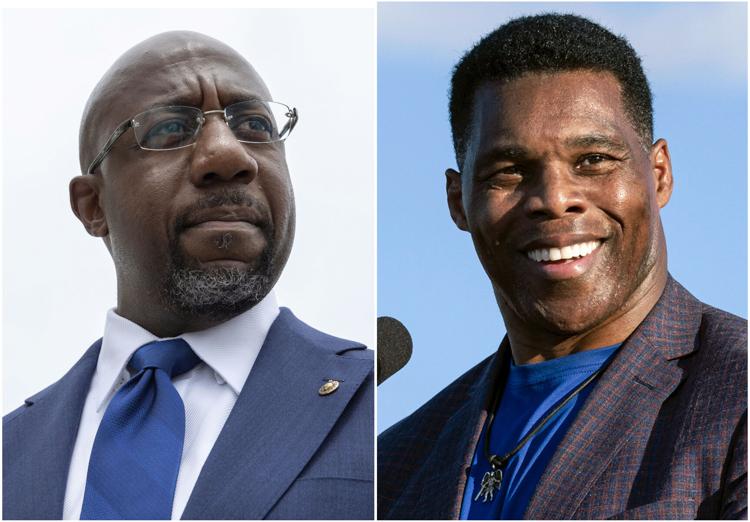
In-person early voting for the last U.S. Senate seat is underway statewide in Georgia’s runoff, with Democratic Sen. Raphael Warnock working to get the jump on Republican challenger Herschel Walker, who is putting less emphasis on advance balloting. After winning a state lawsuit to allow Saturday voting after Thanksgiving, Warnock spent the weekend urging his supporters not to wait until the December 6 runoff. Trying to leverage his role as pastor of Martin Luther King Jr.’s church and Georgia’s first Black U.S. senator, Warnock concentrated his efforts Sunday among Black communities in metro Atlanta. “What we are doing right now is soul work,” Warnock said at Liberty International Church southwest of downtown, where he rallied supporters before leading a march to a nearby early voting site where he cast his ballot. “We are engaged in a political exercise,” Warnock continued, “but this is moral and spiritual work, and for us, that has always been based on the foundation of the church.” Walker, in contrast, did not hold public events over the long Thanksgiving weekend, and he has not emphasized early voting in his runoff campaign appearances, even as the Republican Party and its aligned PACs attempt to drive voter turnout after Walker underperformed other Georgia Republicans in the general election. Walker finished the first round with about 200,000 fewer votes than Gov. Brian Kemp, who easily won a second term. Walker resumes his campaign Monday with stops in small-town Toccoa and suburban Cumming. Early in-person voting continues through Friday. Runoff Election Day is Tuesday of next week. Warnock led Walker by about 37,000 votes out of about 4 million cast in the general election but fell short of the majority required under Georgia law, triggering a four-week runoff blitz. Warnock first won the seat as part of concurrent Senate runoffs on January 5, 2021, when he and Sen. Jon Ossoff prevailed over Republican incumbents to give Democrats narrow control of the Senate for the start of President Joe Biden’s tenure. Warnock won a special election and now is seeking a full six-year term. This time, Senate control is not in play, with Democrats already having secured 50 seats to go with Vice President Kamala Harris’s tiebreaking vote. That puts pressure on both Warnock and Walker to convince Georgia voters that it’s worth their time to cast a second ballot, even if the national stakes aren’t as high. As of late Sunday, almost 200,000 ballots had been cast in the relative handful of counties that opted to have weekend voting. That total was built on long lines in several heavily Democratic counties of metro Atlanta, enough to give Democrats confidence that their core supporters remain excited to vote for Warnock. But the total remains a small fraction of the nearly 2.3 million early in-person voters ahead of the November 8 general election. And Democrats remain cautious given that the early voting window is much shorter than two years ago when the second round spanned two months between the general election and runoff. Voting on Saturday was allowed only because Warnock and Democrats sued amid a dispute with the Republican secretary of state over whether Saturday voting could occur on a holiday weekend. The senator followed up with a parade of Black leaders for weekend rallies and a march reminiscent of voting rights demonstrations during the civil rights movement. “We have one vote here that can change the world,” Andrew Young, a former Atlanta mayor and onetime aide to King, implored Black voters on Sunday. Rising from his wheelchair to speak, the 90-year-old former congressman and U.N. ambassador reminded the assembly of the congressional compromise that ended post-Civil War Reconstruction and paved the way for Jim Crow segregation across the South. “One vote at the end of the Civil War pulled all of the Union troops out of the South and lost us the rights we had fought for in the war and that people had fought for us,” he said, starting “a struggle that we have been in ever since.” Warnock was shifting to a suburban focus late Monday with an evening concert headlined by the Dave Matthews Band. Walker, for his part, has drawn enthusiastic crowds in the early weeks of the runoff, as well, and his campaign aides remain confident that he has no problem among core Republicans. His challenge comes with the middle of the Georgia electorate, a gap highlighted by his shortfall compared to Kemp. “I feel Herschel Walker benefited by having Brian Kemp in the original election on Nov. 8, and I think Kemp not being there will hurt the Republicans a little bit,” said Alpharetta resident Marcelo Salvatierra, who voted for Republican Kemp and Democrat Warnock and still supports the senator in the runoff. Salvatierra said he backed Kemp’s re-election “because it seems to me Georgia has done well.” But Republicans at the federal level, he said, never offered a serious counter to Democratic control of Washington, while Walker also comes with considerable personal baggage. “Character matters, and I sense he doesn’t have character,” Salvatierra said. Warnock has encouraged that sentiment among core Democrats, independents, and moderate Republicans. For months, he’s said Walker, a former football star making his first bid for public office, was “not ready” for the Senate. In recent weeks, he’s ratcheted up the attack to say Walker is “not fit,” highlighting the challenger’s falsehoods about his accomplishments in the private sector, along with allegations of violence against women and accusations by two women that Walker encouraged and paid for their abortions. Walker, who backs a national ban on abortions without exceptions, denies that he ever paid for any abortions. Republished with the permission of The Associated Press.
Attorneys: ‘Botched’ execution caused pain and torture

Alabama prison staff strapped an inmate to a death chamber gurney, despite a court order in place at the time blocking the execution from going forward, and later subjected him to numerous needle jabs, including in the neck and collarbone region while an official held his head, attorneys wrote in a court filing. Attorneys for Kenneth Eugene Smith claimed the state violated the U.S. Constitution, various court orders, and its own lethal injection protocol during the “botched” execution attempt earlier this month. Smith’s attorneys are asking a federal judge to forbid the state from making a second attempt to execute him, saying Smith was already “subjected to ever-escalating levels of pain and torture” on the night of the failed execution. “Defendants’ treatment of Mr. Smith does not fall within society’s standards for a constitutional execution. The botched execution was terrifying and extremely painful for Mr. Smith,” attorneys for Smith wrote in the complaint filed in federal court. The lawsuit accuses the state of violating the constitutional ban on cruel and unusual punishment, seeks monetary damages, and asks for an injunction to block Alabama from “making a second attempt to execute Mr. Smith.” The Alabama Department of Corrections did not immediately respond to an email seeking comment. Alabama Gov. Kay Ivey last week announced a temporary pause in executions to review the state’s capital punishment system, citing concerns for victims’ families that death sentences were delayed. “For the sake of the victims and their families, we’ve got to get this right,” Ivey said. Smith was scheduled to be put to death by lethal injection on November 17 for the 1988 murder-for-hire slaying of Elizabeth Dorlene Sennett. Prison officials said they called off Smith’s execution for the night after they were unable to establish IV access within the 100-minute window between the court clearing the way for it to begin and a midnight deadline. Smith’s attorneys say the state strapped Smith to the death chamber gurney at about 8 p.m. and left him there even though the 11th U.S. Circuit Court of Appeals issued a stay at 7:59 p.m. Smith was not told of the stay and had no way to communicate with his attorney or family as he lay strapped to the gurney, his attorneys said. “The execution continued on in defiance of the Eleventh Circuit’s stay, with Mr. Smith remaining strapped to a gurney until nearly midnight,” attorneys wrote. The U.S. Supreme Court lifted the stay shortly at 10:20 p.m., and it was around that time that the execution team began trying to establish IV access, according to the court filing. Smith was jabbed with needles multiple times in his arms, hands, neck, and collarbone region “well past the point at which the executioners should have known that it was not reasonably possible to access a vein,” his attorneys wrote. Smith’s attorneys wrote that the team tilted Smith in “an inverse crucifixion position” while strapped to the gurney and left him there for several minutes. Attorneys said they also believe the team injected Smith with “some sort of sedative and/or anesthetic”— violating assurances to a federal judge in court proceedings that they do not use intramuscular injections. Attorneys said the prison team then used a large gauge needle to try to establish a line through a blood vessel beneath the collarbone. When Smith did not comply with a request to turn his head, a deputy warden held “Smith’s head in both his hands, torqued it to the side, saying, ‘Kenny, this is for your own good.’” After multiple attempts, the execution team left the chamber, and Smith and his attorneys later learned sometime before midnight that the execution had been called off for the night. It was the state’s second such instance of being unable to kill an inmate in the past two months and its third since 2018. The state completed an execution in July, but only after a three-hour delay caused at least partly by the same problem with starting an IV line. The Alabama Department of Corrections has disputed that the cancellation of Smith’s execution was a reflection of problems. The department blamed the late-running court action, saying, “ADOC had a short timeframe to complete its protocol.” Republished with the permission of The Associated Press.
Democrats kept the Senate this year, but 2024 may be harder
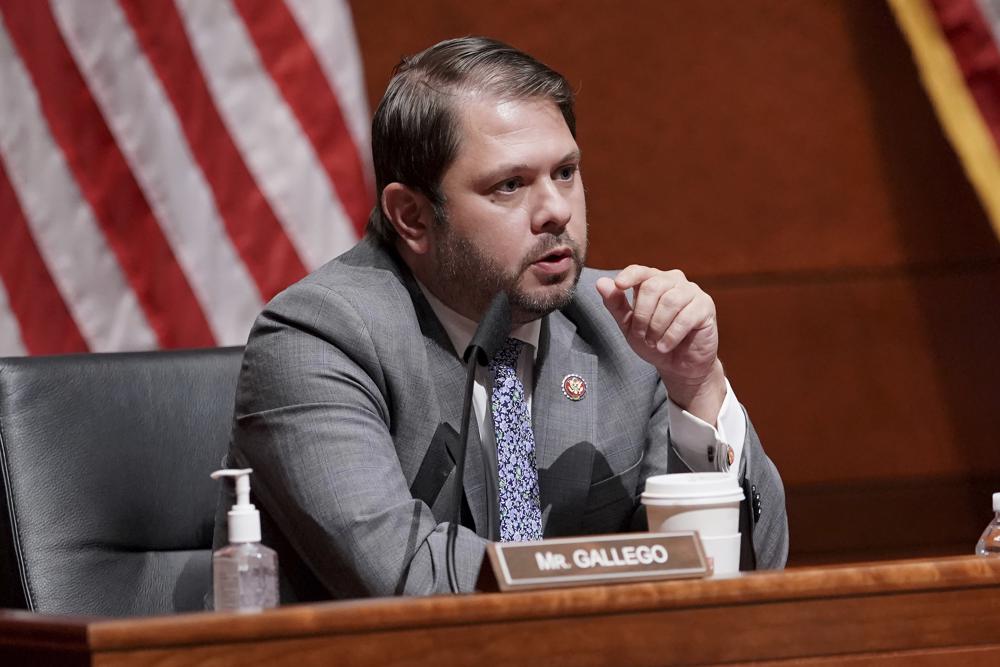
Democrats celebrating a successful effort to keep control of the U.S. Senate this year will soon confront a 2024 campaign that could prove more challenging. The party enters the next cycle defending 23 seats, including two held by independents who caucus with Democrats. That’s compared with just 10 seats that Republicans hope to keep in their column. Adding to the potential hurdles is that some 2024 contests are in states that have become increasingly hostile to Democrats, including Montana, Ohio, and West Virginia. Other Democratic-held seats are in some of the same hotly contested states that were at the center of this year’s midterms, such as Pennsylvania, Arizona, and Nevada. And while Democrats carried each of those races, they did so at great cost and with sometimes narrow margins. In Nevada, for instance, Democratic incumbent Sen. Catherine Cortez Masto won by less than 1 percentage point, or about 9,000 votes. For now, both parties insist they’re laser-focused on coming out on top in the December 6 Senate runoff in Georgia. But Democrats who are on the ballot in 2024 know that they could face fierce headwinds and are studying the results of this year’s election when the party outperformed expectations. For Nevada Sen. Jacky Rosen, a Democrat facing her first reelection campaign, that means staying focused on kitchen table issues and touting legislation like the infrastructure law and gun violence legislation signed by President Joe Biden. “We know that races are always close,” Rosen said in an interview. “We never take anything for granted.” The dynamics of the next Senate campaign could be influenced by a variety of outside factors, particularly the presidential election and the attention it generates. Biden, who turned 80 this month, has said his “intention” is to run for reelection and that he will make a final decision early next year. Former President Donald Trump has already announced a third White House bid, and multiple other Republicans are lining up to launch campaigns. The eventual nominee in each party could have a profound impact on down-ballot races, including those for Senate. But perhaps the biggest question for Senate Democrats seeking reelection will be who Republicans nominate as their opponents. The GOP lost several Senate elections this year, including those in Arizona, Pennsylvania, and Nevada, after Trump-backed candidates struggled to raise money and connect with a broader, more moderate range of voters during the general election. In Nevada, the Republican field to challenge Rosen has not begun to shape up but is expected to attract several contenders. One name receiving attention is Sam Brown, a former U.S. Army captain who was awarded a Purple Heart after being severely wounded in Afghanistan. Brown ran for Senate this year and put up a strong challenge in the Republican primary before losing to Adam Laxalt, who lost in the general election to Cortez Masto. Richard Hernandez, who was Brown’s campaign adviser, said, “He has committed to his supporters that he will never stop fighting for their issues, but he has not made any decisions as to whether that involves a future run for office.” Also in the southwest, Arizona Sen. Kyrsten Sinema, a centrist Democrat, will be up for reelection. The race, like other recent statewide contests in Arizona, is expected to be very competitive. But Sinema is likely to first face a well-funded primary challenger after angering much of the Democratic base by blocking or watering down progressive priorities like a minimum wage increase or Biden’s big social spending initiatives. She has not said whether she plans to run for reelection. Sinema’s most prominent potential primary challenger is U.S. Rep. Ruben Gallego, who has a long history of feuding with Sinema. Gallego has not announced his plans for 2024 but has made it no secret that he’s thinking about challenging Sinema. He even raised money on the prospect he might oppose Sinema. An independent expenditure group is also raising money, saying it will support grassroots organizations committed to defeating Sinema in a Democratic primary. Republicans hope a bruising Democratic primary might give them an opening to win the seat after losing Senate races in Arizona in three consecutive elections. Sinema is among a trio of moderate Senate Democrats who have sometimes used their leverage in an evenly divided chamber to block or blunt some of Biden’s plans and nominees. They will also be among the party’s most vulnerable incumbents in 2024. The other two senators, Joe Manchin of West Virginia and Jon Tester of Montana, will be running as Democrats in states that Trump handily carried in 2020. Manchin has already drawn a GOP challenger in U.S. Rep. Alex Mooney, who declared a week after winning reelection that he was setting his sights on higher office. Manchin has not yet said whether he’ll run for reelection. Republicans see Tester, a three-term senator, as vulnerable, and the opportunity to run for the seat could draw a fierce primary contest between former Interior Secretary Ryan Zinke and Rep. Matt Rosendale. Zinke, who won a House seat in this year’s midterm elections, said he will decide whether to run next year, and Rosendale declined to answer. Tester has not announced if he will seek another term but has said he anticipates 2024 will be just as tough as his last race in 2018, when he beat Rosendale in a close contest. In Pennsylvania, Democratic U.S. Sen. Bob Casey has not said whether he intends to run for a fourth term. Casey easily won reelection in 2018, but Pennsylvania has been competitive for Republicans, including in this year’s Senate race won by Democrat John Fetterman. One potential Republican challenger whose name has been floated in Pennsylvania is former hedge fund CEO David McCormick, who narrowly lost the Republican primary in this year’s race to celebrity heart surgeon Dr. Mehmet Oz. McCormick advisers declined to comment on that prospect. Conservative activist Kathy Barnette, who finished a close third in the Republican primary, didn’t respond to messages about whether she’s considering a 2024 campaign. Wisconsin, which saw Republican Sen. Ron Johnson narrowly win reelection this year, is also expected to have
Joe Guzzardi: Tech workers brace for possible Omnibus job-killer

Like the proverbial bad penny that keeps reappearing, lousy immigration bills are hard to kill off. Consider the EAGLE Act of 2022, also known as Equal Access to Green Cards for Legal Employment, formally recognized as H.R. 3648. The newest proposed legislation is another iteration of the Fairness for High-Skilled Immigrants Act. Although it passed the House by a 365-65 vote, eventually, it stalled in Congress. Introduced by immigration lawyer, amnesty advocate, enforcement foe and expansionist champion Rep. Zoe Lofgren (D-Calif.), the new and the old versions of her proposed legislation both share the same ruinous-to-U.S. tech workers’ feature: the legislation would rob thousands of U.S. tech workers of access to well-paid, white-collar, high-skilled jobs in the science, technology, engineering and math fields, STEM jobs for which they are fully qualified. Along with her like-minded congressional allies that include Rep. Tom Emmer (R-Minn.), who was just elected as House Majority Whip for the 118th Congress and thus became the third highest ranking Republican in the House, Lofgren has scheduled a vote on the EAGLE Act, which has bipartisan support, when Congress returns from its Thanksgiving recess. Briefly explained, the EAGLE Act would dramatically revise portions of the Immigration Act of 1990. Almost any alien who has been on the visa waiting list for at least two years with an approved petition for an employment-based green card could apply for adjustment of his status, which then wouldn’t count against existing numerical caps. Stated another way, employers can sponsor a temporary foreign-born worker for an H-1B nonimmigrant visa and convert that worker to permanent by merely sponsoring him for a green card. Aliens go from temporarily present to permanent residents. With the stroke of a pen, job searches become more challenging for U.S. tech workers – Congress’ twisted idea of sound legislation. The bill also eliminates the per-country caps for employment-based visas, which means that within about a decade, Indian and Chinese nationals will receive virtually all such visas, especially the H-1B; other countries’ nationals would have an uphill climb to obtain a visa. Under current law, no country’s nationals can comprise more than 7 percent of any visa category. This provision ensures that skilled workers from around the globe have an opportunity to come to America. The EAGLE Act, however, seeks to entirely remove all caps from employment-based visas and more than double the existing family-preference visa from 7 percent to 15 percent, a hike that would, because of family reunification, ensure significant population surges. The proposed visa cap elimination is ironic because Lofgren and the EAGLE Act’s cosponsors claim to embrace diversity, but the bill heavily favors Chinese and Indian citizens to the exclusion of most others. Moreover, dependent children of the aliens granted the new status would be allowed to retain their legal standing, a form of amnesty, as dependents of their parents for the duration of the green card application process; they would be protected from aging out while their parents move up in the backlog. An estimated 190,000 minors would be protected. Time was when Democrats purported to care about America’s minority workers. But their empathy toward U.S. workers is long gone and is now redirected to foreign nationals, particularly Chinese and Indians. Blacks, Hispanics, and other minorities aspire to IT jobs, too. But they’ve had little luck in obtaining those coveted STEM jobs. Pew Research found that black workers make up 9 percent of the STEM workforce, while Hispanics also comprise about 9 percent. The low STEM representation among blacks and Hispanics is largely unchanged from 2016. For rational thinkers, few and far between in Congress, a push for liberalized immigration laws and amnesty in light of the border surge and its 2 million-plus encounters in 2022 is beyond the pale. But those sound-of-mind types don’t understand the congressional mindset; nothing stops its amnesty drive. And if the EAGLE Act doesn’t get Senate approval, Lofgren always has the option to attach it to a must-pass Omnibus bill. With the 118th House about to transfer into GOP hands, EAGLE Act supporters view December as their last chance to subvert U.S. tech workers. Joe Guzzardi is a nationally syndicated newspaper columnist who writes about immigration and related social issues. Joe joined Progressives for Immigration Reform in 2018 as an analyst after a ten-year career directing media relations for Californians for Population Stabilization, where he also was a Senior Writing Fellow. A native Californian, Joe now lives in Pennsylvania. Contact him at jguzzardi@pfirdc.org.

